Unexpected: Building creativity through small rebellions
Reveling in the unexpected should be your next #lifegoal and brand strategy. Here are 5 tips to become memorable shared by our Creative Director Jo Skillman at the Creative Circles Conference 2018.
Black Sheep’s creative work plays well in the interesting realm of memorability. In fact, we’re at our best when we’re helping our clients rebel against what’s expected in their markets and industries. We help clients succeed by giving them an unexpected edge to stand out with an unanticipated point of view.
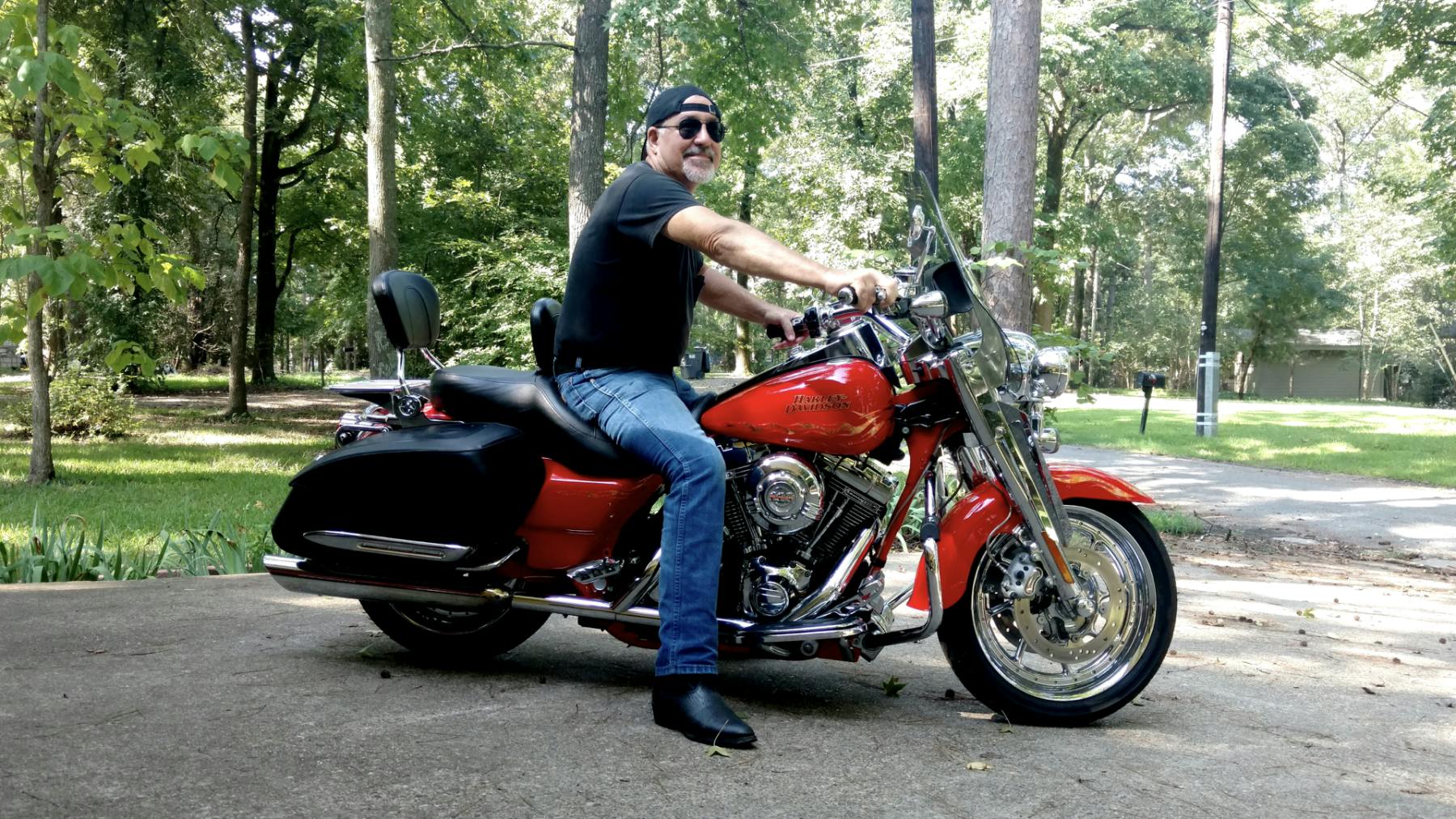
Meet my dad. He’s the most memorable person I know. He’s the most memorable person MOST people know, actually. If you ever meet him, you will remember him until the day you die. Not only does he wear this exact outfit every single day like a cartoon character, but he is also an inventor. He owns a bear hunting knife he has used to kill bears. He bakes cookies. All of his tattoos are on the left side of his body because he is right-handed. He ran away from home as a teenager and lived IN Yellowstone National Park for SIX MONTHS. Everything about my dad is unexpected.
The nice thing about shooting for unexpected is that you can definitely hit it. Because, on a very human level, there’s always someone better-looking than you, smarter than you, more talented than you. You can’t necessarily do much about any of those things, but you can certainly be more memorable than everybody else. We’re all in our own lane when it comes to being successfully unexpected in ways of our own choosing.
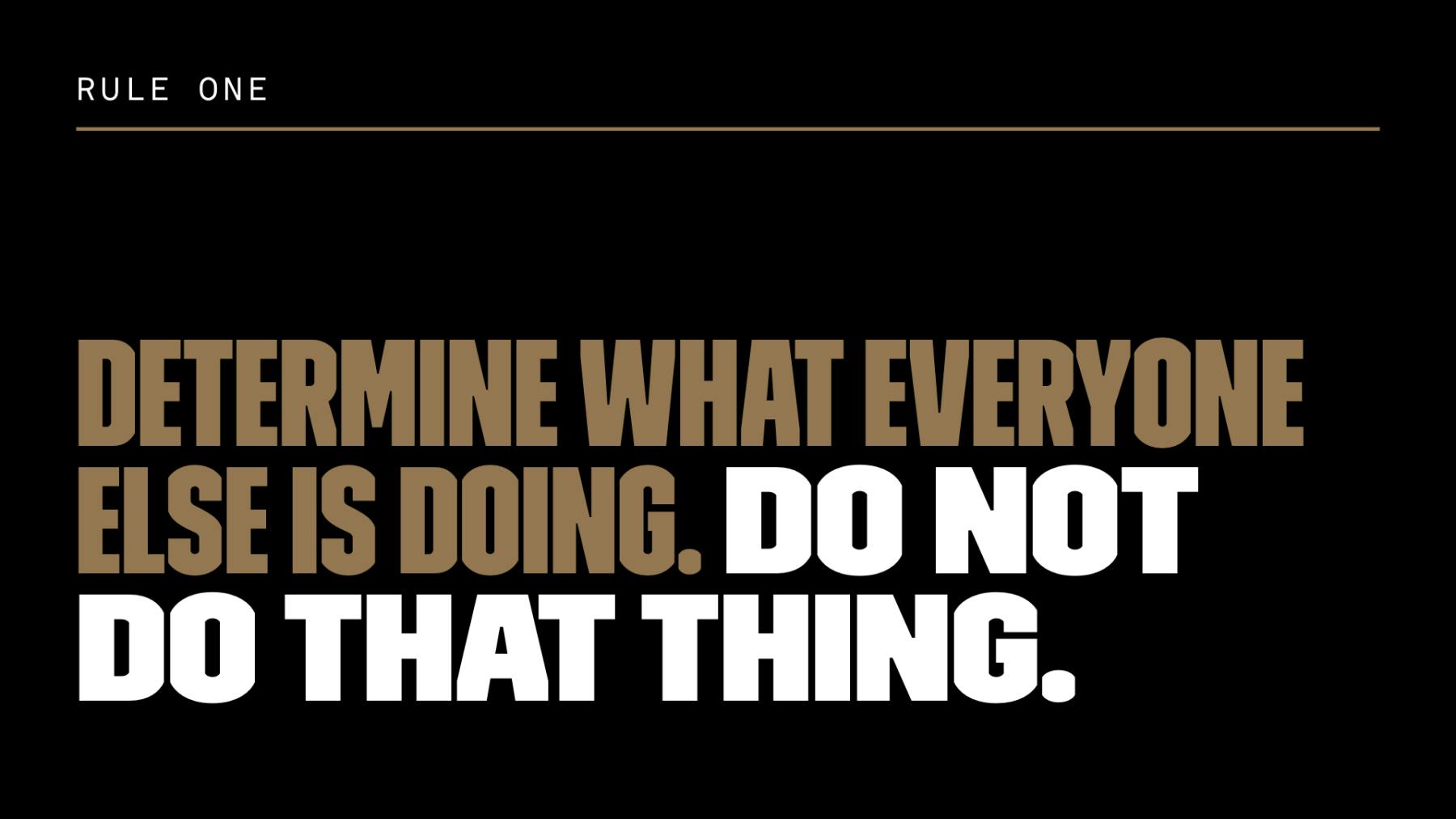
#1 Determine what everyone else is doing. Do not do that thing.
Stepping past what others are already creating is just really literal and obvious, but I think is often the initial driver for the best ideas. We always try to make creative ideation more complicated than this and it just isn’t necessary. Simple as that.
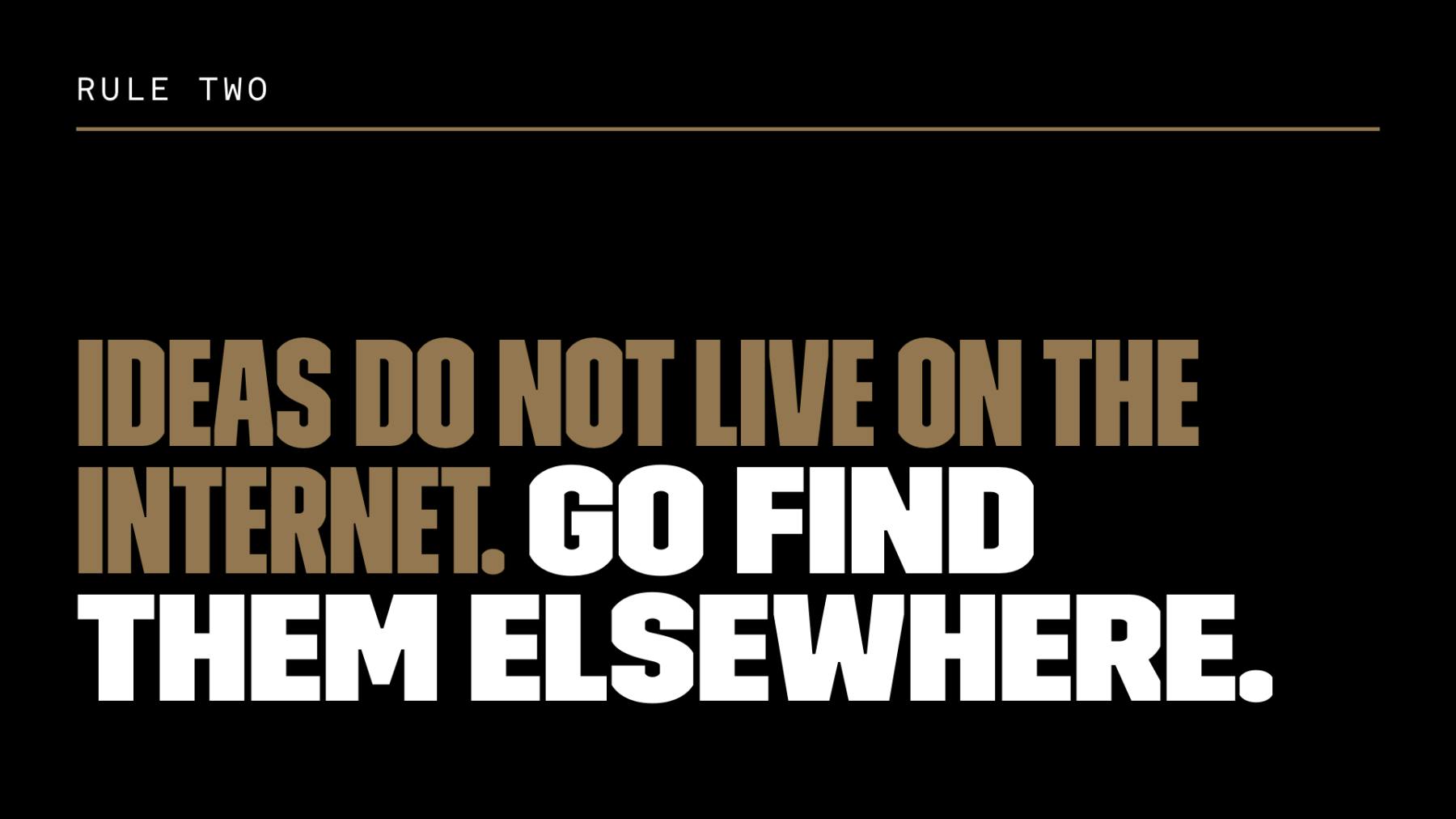
#2 Ideas do not live on the Internet. Go find them elsewhere.
I love estate sales. I’ve been going to estate sales since I was 14 and most free weekends you can definitely find me digging through someone else’s used crap. Estate sales are not an efficient way to shop for anything. But sometimes you find gold. Much like great ideas—you have to stumble upon them after poking through a lot of stuff that didn’t seem directly related or even relevant.
Books are a wonderful way to hunt for ideas. So are antique stores. So are drinks with friends, a walk in your neighborhood, a trip to Budapest or lunch at a taco stand. A story of yours or someone else’s. Any experience. Any point of view. Any “useless” trivia. Anything you can do or look at or consider or learn that is something different from what you might look for when you’re looking too hard. These are the places ideas come from.
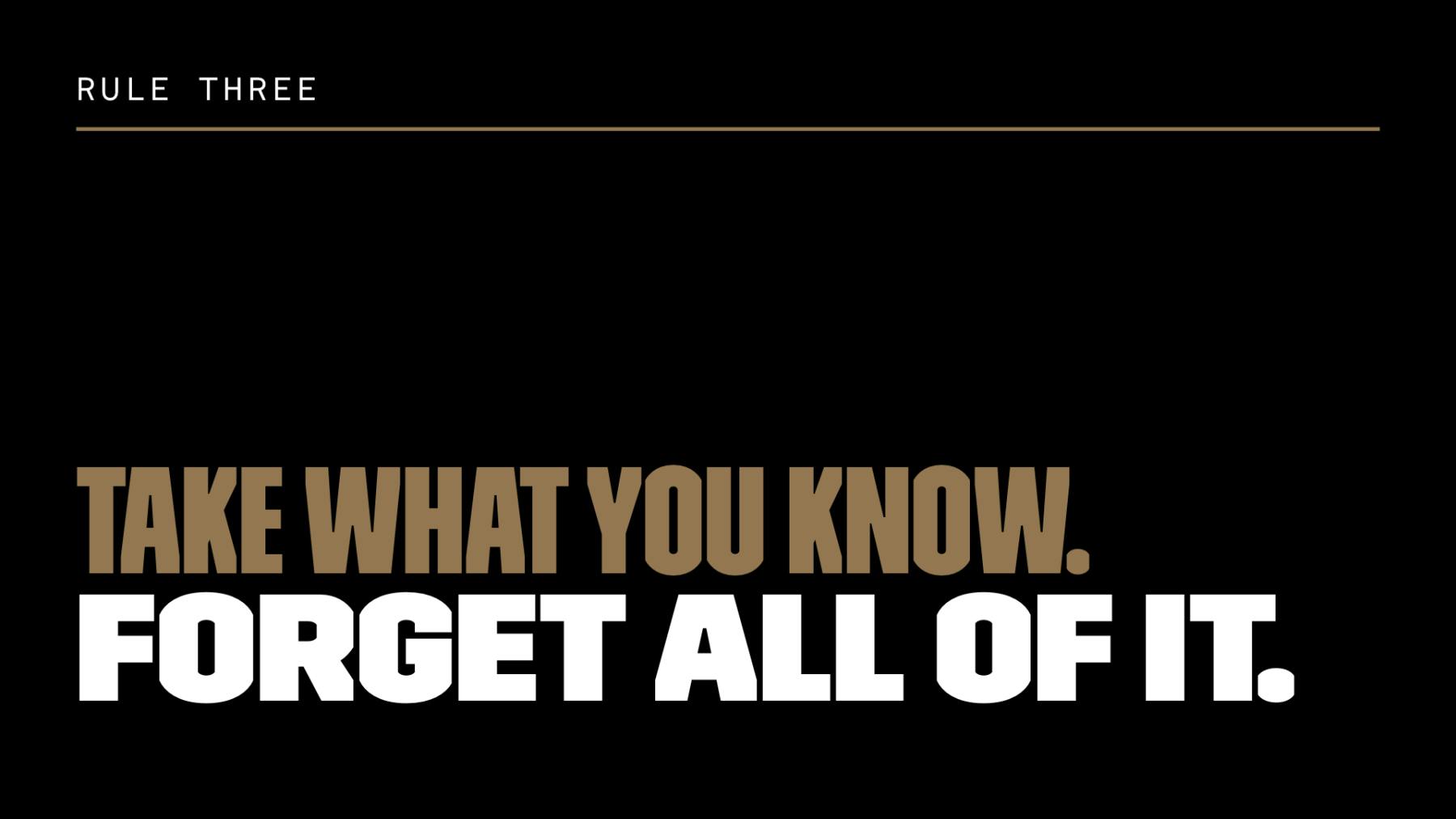
#3 Take what you know. Forget all of it.
Years ago, I ran a pie shop for a woman named Georgia Goggans—one fo the most ingenious and creative people I know. At the time, she wasn’t very familiar with social media but heard from her grandchildren about Facebook. She loved the idea that people could share ideas and other people could like and comment on it. So, she decided to make an IRL Facebook wall by, well, finding a giant whiteboard and writing “Facebook Wall” at the top of it and updating it with her new thoughts every day outside of her shop. People completely embraced it, they would walk by and add checkmarks for a like, write a reply back to her original “post” and take photos of it to post on their actual virtual Facebook wall. It was a delight for everyone. Georgia is for sure a black sheep.
When you forget what you know—or you ask someone who doesn’t know—you release all your personal biases, all your preconceived notions, all the well-worn paths your mind has been trained to go down and you can come up with something unexpected.
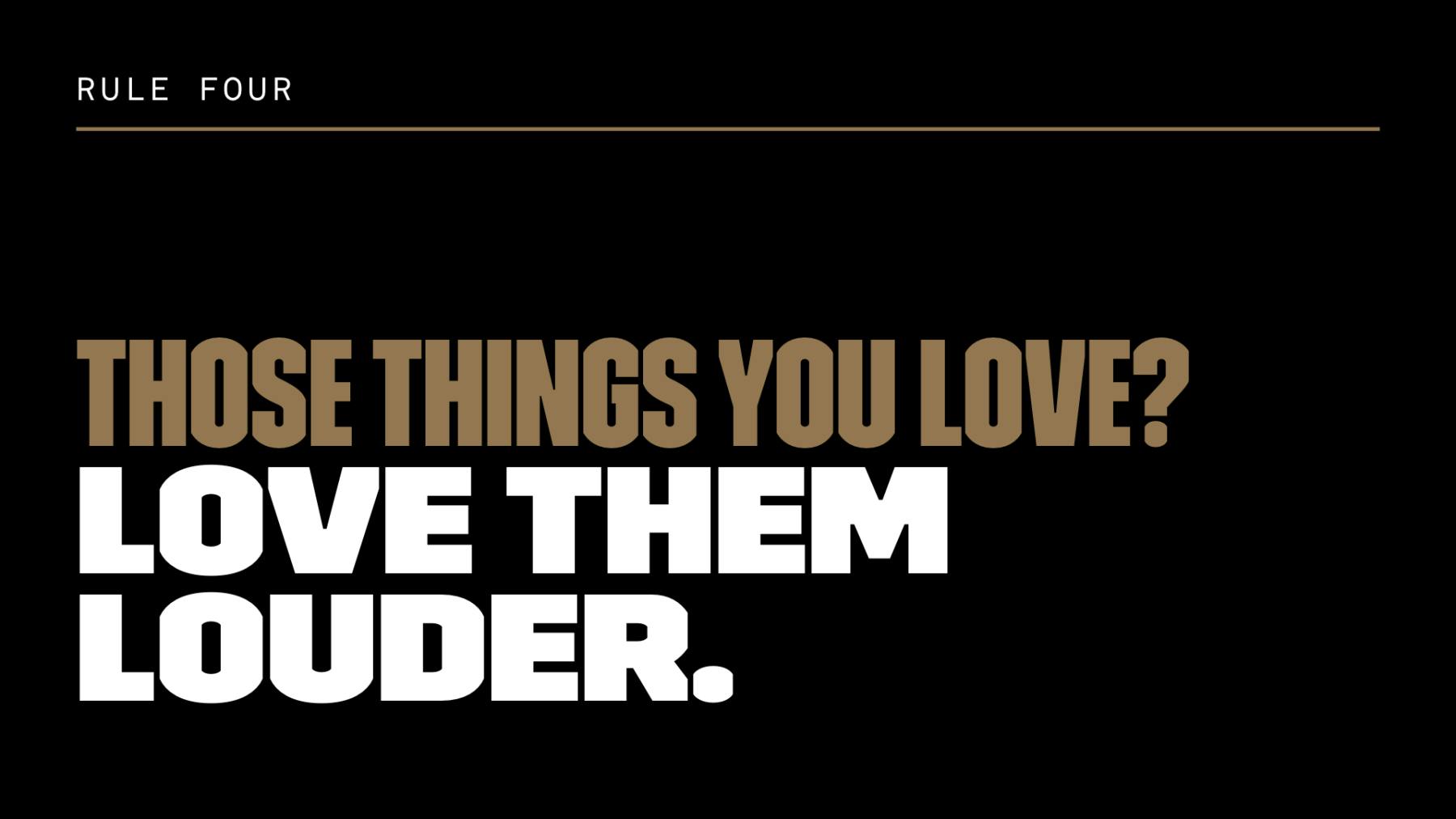
#4 Those things that you love? Love them louder.
People love to work with other people who are excited, who see the same opportunities, who see the same injustices and who care past five o’clock. And when they feel that way, they should say so. YOU should say so.
If you love something—something creative you’ve built, something you read about the market your client is in, something you saw that your client has made or changed or improved, say so. It shows that you care, that you’re paying attention. That you’re excited about your work and theirs. Get excited about stuff. Take other people with you.
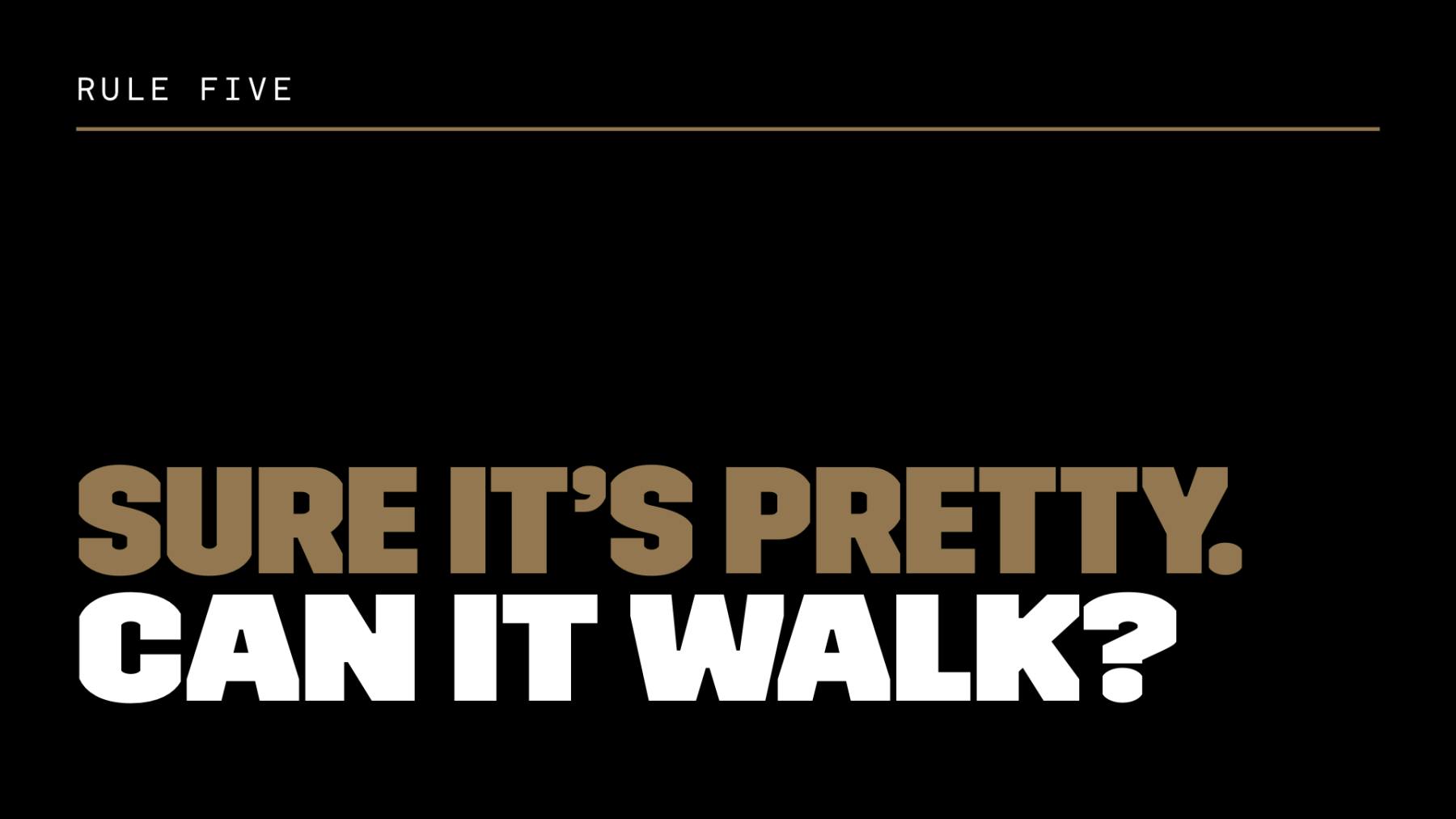
#5 Sure, it’s pretty. Can it walk?
This is another way of asking “Does your concept have legs?” At Black Sheep we start out designing nearly all of our campaigns as posters. It’s not because all of our clients print giant posters (though I would love it if they did), it’s simply because posters are a short, easy test for concepts. You get very little copy and very little interactivity, yet you still have to convince a viewer to be curious about that single sheet of paper, either because it says something interesting or it looks interesting, and ideally both.
But the bigger test comes after that because when you activate communities around things that matter, as we do, you can’t just resize the same ad eighteen ways and call it a day. Your creative concept has to take on different nuance for different audiences. Why do students care about this? Why do office workers care about this? What are we asking each of them to do, and why will they be motivated to do it? The same headline in ten places is not robust enough to engage the size of the audience we need to engage to make a change.
Your campaign also has to give people ways to interact with it. We build engagement campaigns so are always wondering how will people engage? Sure, they can visit a website or hashtag, but just because you offer the opportunity doesn’t mean they’ll take it. In fact, they usually won’t. Unless it’s something they feel really compelled to talk about.
In my experience, these things are: Their children. Their dog. Their cats. Things they’re mad about. Food they loved. Food they hated. Food they can’t/won’t eat. How much online dating sucks. Allergies. Sports. The weirdness of their extended family/mother. Things that make them sound like good people. And, for some unknown reason, coconut oil. Your job is to make it easy and compelling for people to talk about the things that they’re already wanting to talk about. That’s how your concept walks among communities of people.
Those are all the big things we focus on when building creative that’s memorable and unexpected. We’d love to hear how you find your path through predictability and into the realm of the unexpected, shout it and let us be inspired with you!